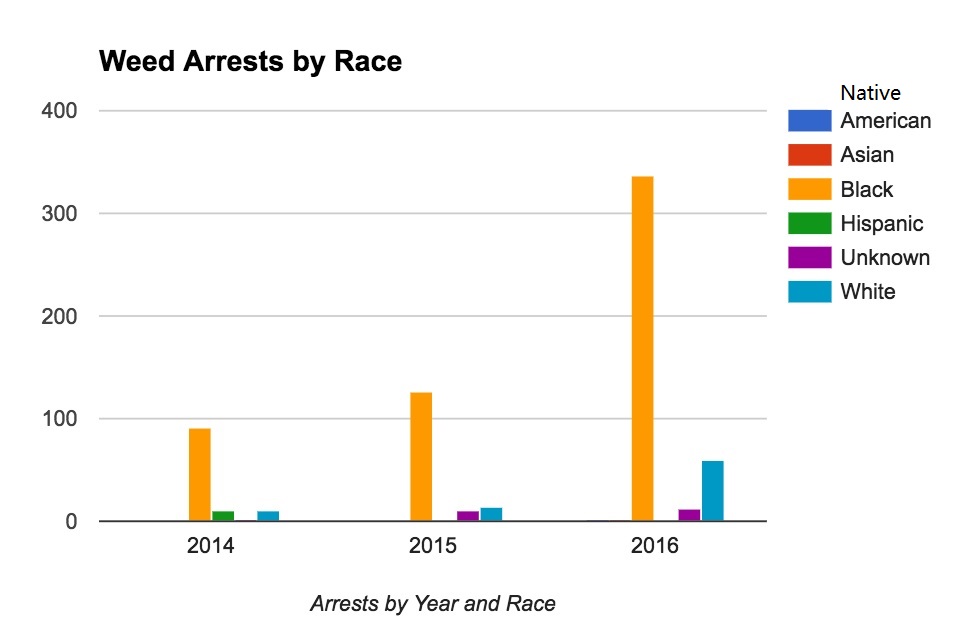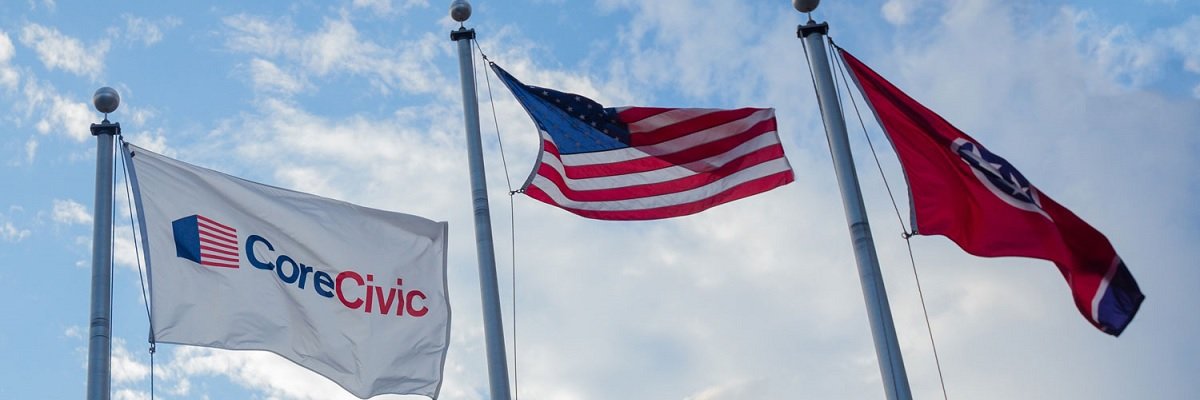This year saw our 10,000th completed FOIA request, a grant that allowed us to finally hire our founders full time, and the release of millions of pages of Central Intelligence Agency records as a result of our lawsuit. Here are the stories, big and small, you helped uncover this year.
January
-
We started off this year with Emma Best’s FOIA work revealing that President-elect Donald Trump’s pick for Treasury Secretary, Steven Mnuchin, appeared to be tied to a federal investigation. Federal investigations will become a running theme for the rest of the year.
-
Beryl Lipton offered up some cheery GIFs and hope for a FOIA-friendly future. Cheery GIFs becomes a running theme for the rest of the year, while hope does not.
-
Curtis Waltman writes his first article of what becomes a larger series about about police presence at the Standing Rock protests against the Dakota Access Pipeline.
-
JPat Brown writes about Homeland Security’s comical mishandling of an alleged Russian cyberattacks. Luckily for him, alleged Russian cyberattacks do not come to dominate the 2017 news cycle, and he receives no angry emails demanding to know how much the Kremlin is paying him.
-
Meet the new FOIA, same as the old FOIA.
-
The Federal Bureau of Investigation quietly decides all FOIA requests over 50 pages are “complex,” with a processing time around two years. The #FOIA community loudly decides that this is terrible.
-
MuckRock announces its Thiel Fellows, who will work to shed light on the work of Peter Thiel. Thiel does not react to this news by crumpling a newspaper and warning us that we’ve made a powerful enemy.
-
Speaking of powerful enemies, just in time for the inauguration, we start a project to FOIA the Trump Administration.
-
Following a three-year lawsuit (in which we were generously represented pro bono by Kel McClanahan and Best’s efforts to irritate the Agency into submission, the CIA finally uploads its entire declassified CREST database online. You can read McClanahan’s account of all the Agency’s excuses for why this couldn’t be done here.
-
MuckRock vows to make the most of the release of CREST by launching a project to take a daily deep-dive into the archives and write about what we find, from the serious to the not-so-serious. Things kick off rather auspiciously with an article on Ronald Reagan’s Russian jokes and their possibly sinister origins.
-
Morisy’s prediction for FOIA under the Trump administration is long delays and litigation, which is always a safe bet.
-
In local news, former Golden Padlock award winners for least transparent agency in the country, the Massachusetts State Police, remain quite bad at this whole public records thing. They don’t get any better as the year progresses, either.
-
Lipton, who founded the Private Prison Project in 2014, reports on how the for-profit incarceration industry, whose stock prices took a hit at the end of last year when the Justice Department announced they’d be “phasing them out” at the federal level, are now looking at record highs as one of the main benefactors of Trump’s tougher immigration policies. Just a month later, new Attorney General Jeff Sessions announces a full roll-back on that phase out, which combined with the industry embracing diversification, means private prisons are officially not going anywhere anytime soon. Lipton takes a deep sigh and stays there.
-
In all seriousness, if you want to help out with Lipton’s work investigating the industry, here’s where to start.
-
Speaking of things that are still things despite extensive documentation on why they shouldn’t be things, Curtis Waltman looks into Stingray cellular surveillance and the inauguration protests.
-
MuckRock publishes the first of its articles on the government’s decades-long research into psychic powers, also known as the STARGATE program. @Wake_Up_Sheeple1776 blasts us for our lack of editorial integrity because we occasionally poke fun at the doodles.

- We’re still waiting on somebody to try the CIA’s secret fudge recipe.
February
-
Andrew Quemere digs up Federal Trade Commission records about that time the government investigated Nintendo.
-
Brown finds that the Executive Editor who interviews himself has a fool as his subject.
-
Actually on time for the holiday this year, MuckRock offers up FOIA-themed Valentines! Although fair warning, the J. Edgar Hoover card is legal grounds for divorce in 28 states.

-
MuckRock staff puts the FOIA in infatuation by revealing their FBI file crushes. Caitlin Russell shares hers several months later, turning it into a weird office hazing ritual of a sorts.
-
The National Security Agency claims 70 year old coded Russian transmissions are still classified TOP SECRET, probably because they get a kick out of messing with Eric Garland. (If you didn’t get that joke, please don’t Google it. You are better off not knowing.)
-
The FBI wants to make its terrible, horrible, no good, very bad FOIA portal mandatory. Much stink is raised, and in response, the Bureau makes slight tweaks.
-
MuckRock turns seven, offering an opportunity to reflect on how far we’ve come, to ponder what the future holds, and to be reminded of how ugly WordPress templates were in 2010.

-
FBI cites six different exemptions in its file on former WikiLeaks director Gavin MacFadyen.
-
Vanessa Nason reveals how little we know about about how little we know about gun violence.
-
Private prison in New Mexico responds to Lipton’s request for grievance logs by charging $78 for 78 redacted pages. “How obviously bad this is,” Lipton says to herself. “Don’t people understand how bad?”
-
Best uncovers a list of journalists that composed the CIA’s secret press pool in the ’60s. That “in the ’60s” part doesn’t quite grok for some folks, leading to several #MAGA tweets demanding @realDonaldTrump investigate people that have been dead for decades.
-
Nathan Lawrence uses FOIA to get a copy of surveillance camera footage from the roof of the Smithsonian building on inauguration day, finally ending the debate over crowd size. Haha, just kidding - debates don’t end in 2017. Everything is forever.
-
After “neither confirming nor denying” the existence of its highest security biolabs, the Centers for Disease Control confirms they just don’t have a list, which is significantly less comforting.
-
To celebrate the Run the Jewels show in Boston, Lipton pens a public records breakdown of Killer Mike’s “Reagan”. While MuckRock staff is not invited onstage to rap about the prison-industrial complex, we do get a retweet, which is pretty much the same thing.
March
-
Grace Raih launches a project to provide a comprehensive list of FOIA resources that will help prepare, participate, and investigate protests.
-
As a displaced New Orleanian in Boston, Brown celebrates Mardi Gras the only way he knows how: combing the CIA archives for something stupid.
-
FOIA March Madness 2017 kicks off! After weeks of intense competition, the Securities and Exchange Commission unseats the U.S. Department of Agriculture as the Most Responsive Agency. A month later,the CIA finally get around to acknowledging our request from 2016, and then promptly reject it as too burdensome.
-
Russell writes about the over 800 pages of civilian complaints related to the controversial North Charleston Police Department, which become the basis of a report on racially-biased policing by the Thurgood Marshall Institute.
-
FBI releases its most recent “vexsome filer list,” which leads to a solid week of people saying ‘vex’ a lot.
-
As part of Sunshine Week, Morisy interviews our new FOIA ombudsman, the Office of Government Information Services’ Alina M. Semo.
-
For the 20th anniversary of Biggie Smalls murder, Lipton dives into the rapper’s FBI file and discovers the Bureau didn’t bother picking up the case until after an agent heard about it on a VH1 special.
-
Best reveals that the CIA forgot about a bunch of classified documents stashed in the Rockefellers’ barn. That turns out to be far from the weirdest entirely accurate sentence written about the Agency this year.
-
In significantly less fun news, Matthew Guariglia uncovers the CIA’s “Homosexual Investigations” manual that it used as part of its policy of targeting LGBTQ employees for expulsion that ran into the ’80s.
-
To ensure the development of the next generation of muckrakers, Lipton offers a FOIA 4 KIDZ lesson plan for educators.
-
Inspired by a certain problematic podcast, Waltman offers a guided tour of lesser-known DEA patches, including everyone’s favorite, the Glowstick Grim Reaper.

-
Saint Patrick’s Day coincides with the end of Sunshine Week, so MuckRock celebrates by digging up Reagan’s Irish spy joke and compiling a list of FOIA-themed cocktails (the latter are now available as part of our snazzy coaster sets).
-
Lipton starts a project looking at the cost of phone calls in prison, starting with Massachusetts.
-
Guariglia uses public records to reveal that Milo Yiannopoulos’s college speaking tour was bankrolled by billionaire Trump-backer Robert Mercer.
-
Waltman writes about Utah’s technical manual for carrying out execution by firing squad.
-
Best releases a trove of police photographs from Standing Rock, which reveal a sniper was deployed against nonviolent protesters.

- Brown discovers the CIA’s top-secret bowling and softball leagues and then feels bad that he’s not doing work as important as everyone else.
April
-
Sunshine sinners, there’s still time to buy a Big League Transparency Offset.
-
Best makes the case that the Justice Department’s refusal to prosecute the CIA for decades of illegal surveillance might have set a bad precedent for intelligence agencies being held accountable for illegal surveillance.
-
Nason puts together a timeline of Trump’s hunt for the rogue National Parks Service tweeter.
-
See if you can spot the trend in marijuana-related arrests in post-legalization Washington DC released to Dan Nguyen.

-
Private prisons get taxed at a lower rate than you do. “So bad!” Beryl says to nobody in particular.
-
Four years after Morisy’s initial request, Guantanamo Bay releases its library guidelines.
-
Nason reveals how little we know about about how little we know about the rape kit backlog.
-
We don’t know how many people die each year in the American prison system, either.
-
We do know, however, how many CIA employees were fired after a cafeteria food fight in 1965: “three or four.”

-
To celebrate Earth Day, Best wrote about the CIA’s proposal to use its declassified records as “an alternative fuel source,” Russell looks at the time the U.S. and U.K. used environmental concerns to deny the right to return to a group of native islanders whose lands it essentially stole, and Lipton outlined the immediate impact of having Scott Pruitt as head of the Environmental Protection Agency. MuckRock staff vows to have a much less depressing celebration next year.
-
Lipton writes about the absurdity of the government owning the patent on the medical uses of marijuana, a drug they also claim has no medical use.
-
100 days into the Trump administration we’re seeing long delays and litigation. Told you it was a safe bet.
-
Justice Department’s Office of the Inspector General confirms that at least one private prison is indeed bad. “That’s what I’m talking about!” Lipton says to nobody in particular.
-
Scott Adams plays coy as to why there’s a Dilbert strip in the CIA’s collection of psychic research.
I have a good idea, yes. But I can't share it. (True story.) https://t.co/swfk1hXsJG
— Scott Adams (@ScottAdamsSays) April 26, 2017
-
On a completely unrelated note, one of those same CIA psychics claimed the Oklahoma City Bombing was the work of “five Arabs.”
-
Best closes out the month with the story of how the CIA indirectly killed a black bear with cocaine. April was something else.
May
-
Nason moves on from gun violence and sexual assault to the marginally less depressing topic of food stamps.
-
A MuckRock tradition, Hoover Week parallels Shark Week and looks at incidents concerning the longest-running FBI director, ranging from the rather silly to the absolutely terrifying.
-
Russell writes about Congress has a police force that is secret and accountable to no other department. “That doesn’t make it a secret police,” whines man on the internet.
-
Morisy writes about Reagan’s “Star Wars” program and somehow manages to bury the lede about an orbital death ray.
-
Seattle responded to request for text messages by photocopying a phone. The internet is greatly amused.

-
Best writes her first piece on the suspicious death of Danny Casolaro. If you’ve got a few hours to kill and you don’t mind never sleeping again, you can dive into the “Octopus Conspiracy” here.
-
Apparently gunning for the least responsive police department in Massachusetts title, Worcester Police tell Russell it will take 15 minutes to “review and redact” each of its emails with the Trump campaign, costing $9000 in processing fees.
-
Emails released to Morisy reveal that the culprit behind the 2014 CIA hack turned out to be … the CIA.
-
Prison Planet picks up Waltman’s story about cops around the country spending millions on riot gear, and rather than reading it as a cautionary tale of police militarization run amok, present it as evidence that AntiFa’s planning a MASSIVE RIOT. Waltman takes a deep sigh and stays there.
-
Remember last year’s good news about social media surveillance company Geofeedia tanking after FOIA exposed them to public scrutiny? Yeah, about that …
-
Actual Virginian Tom Nash is forced to prove to Virginia that his Virginian so that he can be allowed to read the emails of faux-Virginian Corey Stewart.
-
Waltman kicks off a project to explore regulation in the bail and bounty industry, almost immediately uncovers an audio clip of two regulators joking about how unregulated the industry is.
-
Best asks: is the CIA improperly withholding information to avoid embarrassment, or is it hiding illegal methods? Turns out it was both - they were stealing Jane Fonda’s mail.
-
And the award for Massachusetts police department that’s the worst at transparency goes to - what’s this? A CHALLENGER APPEARS!
-
Emmanual Noriega dies, leading to brief mainstream interest into that time the CIA worked with Reagan’s White House to kill probe into Noriega’s drug trafficking activities.
-
Lipton makes a trip to private prison mecca Florence, Arizona, and discovers that the computer terminals that she was going to use to look up court records on had been down for about two years. She’s then confronted by a security guard who thinks taking pictures is illegal, and had somebody call in the police on her for “suspicious behavior.” It’s the nicest vacation she’s had in years.

June
-
DAPL report that Army Corps of Engineers had earlier claimed was too dangerous” to release to public turns out to have been up on its website for a year.
-
Best unironically galaxy brains by making a solid case that government conspiracies may themselves be a government conspiracy.
-
Waltman gets Tucson Police’s usage log for their “mobile phone forensic extraction devices,” better known as “phone crackers,” and hoo boy, are they getting some use of those things.
-
But in actually good news, New York becomes first city to fully divest from private prisons.
-
Brown writes about the CIA’s garbage UFO photos, and how offensive it is the Agency fought to keep this blurry garbage secret for decades.

-
Russell writes on the worrying trend of journalists getting arrested for doing journalism.
-
Louisiana releases a list of thousands of businesses that employ low-cost prison labor. Brown scrolls down the list and feels guilty as hell.
-
Best uncovers what might be the most convincing explanation for why the government spent decades and untold millions on psychic research: nobody understood how probability works.
-
Courts rule that Federal Communications Commission can’t regulate in-state prison phone calls. While a bummer, complaints later released to Lipton reveal that some of those companies to which the caps should have applied charged as much as they wanted anyway.
-
After hearing New York Police Department’s Deputy Commissioner John Miller claim that the department is “the most transparent municipal police department in the world,” Brown compiled a list of why that’s demonstrably untrue.
-
Records released to CJ Ciaramella shows the FBI kept tabs on a Bay-area Dungeons and Dragons group it deemed “armed and dangerous,” as well as “overweight and not neat in appearance.”

-
Lipton profiles the board of directors for private prison giants CoreCivic (former CCA) and GEO Group, which features former heads of Immigration and Customs Enforcement and the U.S. Marshals Service. Which funny enough, happen to be two of the industry’s best customers. “Wait ‘till they hear about the blackface thing,” says Lipton, who will never feel surprise by the awful behavior of her fellow human beings ever again.
-
Brown, stop trying to make Paul Krugman’s FOIA selfies happen. It’s NOT going to happen!
-
Fun fact: Steve Jobs’ FBI file contains an actual phone.
-
While not a police department, Fall River Municipal Court makes a solid contender for rudest Massachusetts agency.

-
Alec Shea uncovers a CIA memo from 1951 outlining 33 similarities between U.S and Soviet Propaganda.
-
Best begins her epic 14-part saga documenting the CIA’s 60-year war with the Government Accountability Office.
-
Brown finds a CIA memo on the right way to staple. “This is also important,” Brown says to nobody in particular. “Isn’t it?”
-
The MuckRock community celebrates the successfully completion of its 10,000th public records request. As of writing, MuckRock is nearly a quarter of its way to the next 10,000th - and it’s all thanks to you, and the FOIA officers who literally make this possible. In a moment of wall-breaking sincerity, thank you, truly.
Read Part 2 here.
Image via National Archives Flickr




